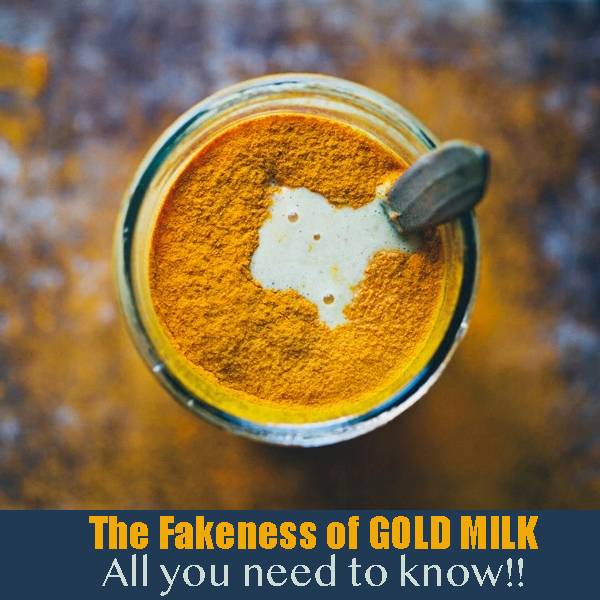Ayurveda is the talk of the town everywhere in the world. But there is some confusion about the exact meaning of Ayurveda. Right from definition up to the expended view of the Ayurveda there are a lot of misunderstandings. This confusion is not only for a lay man. Most of the world is confused with this word Ayurveda.
You ask or search about Ayurveda and you will find that Ayurveda is made up of two words-
Ayu and Veda and these are told as Ayu= Life and Veda = the knowledge.
So meaning of Ayurveda comes to be Knowledge of the Life!
Is it really so? Does Ayurveda mean the same?
Do you have heard another word: Biology?
Yes, for sure you had. Bio stands for Life and Logus for the knowledge of! So Biology also translates like Ayurveda- Knowledge of Life!! So Ayurveda and Biology are one and same things?
Not surely! Ayurveda and Biology are two different streams.
Where biology is all about looking on the life- how a living creature behaves and how things go on in a living creature is about Biology. Paradigm of Ayurveda is totally different. Ayurveda is a way to maintain, nourish and propagate the element what we know as Life.
Where Biology can only tell you how system of a living creature works, on contrary to this- Ayurveda can tell you how one can maintain the proper working of that system.
So finally this is much clearer that Ayurveda is not all about Biology or Ayurveda is not just knowledge of the life alone. Ayurveda is something above the simple thought of ours.
AYURVEDA: A Way of living
Ayu in word Ayurveda is complex. Ayu is the lifespan. The time one is going to spend on the earth is the Ayu.
When one says that Ayurveda brings longevity and writes a bestselling book to make you immortal, it makes me to laugh.
Your Age is on a run every moment. We accept it or not, but we are proceeding towards the end to the death every moment, unstoppably.
Every day we meet such attributes, we do some works like this—all these lead us to the death by deteriorating the capacity of livingness. This capacity of livingness is commonly known as “Life”. Once this attribute of livingness- life ends up, it makes us dead. This span between birth and death is the life, the livingness.
Ayurveda is a manual which tells what to do and what not to do to avoid the problems. Ayurveda is a manual of healthy living. Whenever we buy a machine, we got a manual as Ayurveda.
Now when we know the definition, lets explore more about Ayurveda.
More on Ayurveda….
Many of us have different views about Ayurveda like-
- This is a system of home remedies!
- A pseudoscience originated back in India for placebo impact.
- Ayurveda is an Indian system of health, meant for India only.
- This is quackery with the herbs and some Doshas.
- Ayurveda is a system of dripping some oil on forehead and massages just.
These are different views about this ancient science from different people, but none of these above said people ever tried to get the real meaning of Ayurveda. They feel their Ignorance is their knowledge! This is applicable for them for everything in Ayurveda, but it is not so, exactly.
There are some special things about Ayurveda and these are –
- Ayurveda is a well managed and well manuscript system of being healthy.
- This wonderful science is based on principles and calculation, Ayurveda is not just a system of predictions.
- First well managed description about Diagnosis, Prognosis for the diseases is available only with Ayurvedic school of medicine.
- These might be the best designed Surgical Equipments or the detailed description about Herbs and Diets, Ayurveda is the first to do so.
How is Ayurveda first in all this?
Answer is simple- Origin of this Indian science is back before 5000 years. When man was just trying to learn how to make the best survival in the world. During those times, monks developed and worked on principles of Ayurveda. They all were away from the “tricks” and “tactfulness” of materialistic world. There was no “hunger” of Nobel awards, because their cause was Nobel- to serve and save mankind against the diseases.
Ayurveda has eight fold principles, which are-
- Avoid the unhealthy- Foods, Lifestyle, Talks, Speech everything which is unhealthy.
- You are unique in every sense, manage your individuality.
- Use the right things, paths and ways to stay healthy.
- Restore your energies in time.
- Value the most Valuable- the Health
- Eradicate Diseases from root
- Discover your inner sense
- Arrange your Body, Mind and Soul
Ayurveda has some deep principles, which are important to understand for better understanding of Ayurveda as a science, along with this- it is important to have an idea what Ayurveda thinks about human body and life.
Philosophy of Ayurveda
Every science has its roots somewhere in the Philosophy, before verification and application every science was a Philosophy. This applies with the Law of Gravity by Isaac Newton and theory of relativity by Sir Einstein too.
Keen observation and intuitive analysis are base of any philosophy. Application of philosophy through repetitive results makes it science.
So at a stage all the sciences were philosophies. Most of the modern sciences have departed themselves from their philosophical roots, but sciences like Ayurveda still carry the philosophical linkage of their roots with them.
For example: “Food is thy medicine” is the Philosophy of the modern medical science coined by Hippocrates himself. But this Philosophy was ruined completely by the market and commercial ideas of the modern day medical sciences.
They have some other versions because the thought of Hippocrates cannot make some money, which is the ultimate goal of maximum of the physicians- nowadays. Anyhow; here are some of the basic philosophies of Ayurvedic science, which proves make this science completely practical and applicable in the Age of allopath medicines.
What matters is Energy:
This is the prime aspect of Ayurvedic Philosophy; according to Ayurveda these are the energies, which are responsible always for the any kind of working or execution. We human beings, our physical bodies are the results of the same energies. These energies are Triguna- Sattava, Rajas and Tamas on the primary level and on other level these becomes- Tridoshas- Vata, Pitta and Kapha!
These energies are invisible! These represent themselves by their actions and executions.
Visible is not always true:
What is visible is thought to be the main source of knowledge by modern science. Indian sciences don’t believe in this. According Indian Philosophy- what is visible cannot be true always. Because when we visualise something- we interpret the object according to the previous knowledge stored with in memory. So there will be always some preoccupied thoughts about that particular object.
Difference in Cure and Management:
There is a big gap and difference in cure and management of a disease according to Ayurvedic Philosophy while allopath medicines take these as synonyms mostly. Cure is to eradicate the disease from its roots- without leaving some scars somewhere and management is to suppress the signs and symptoms of a disease. This is the reason why Ayurveda eradicates the diseases completely, not partially.
We are results of the foods
What we eat that we are! This is the core policy of Ayurveda which makes diet a main concern for everybody and none can leave it behind. Foods are not just about nutrition but the right or wrong selection of the foods can change the definition of the life even.
Treatment is that which never causes side effects
In allopath medicine everything comes for a cost. A medicine if saves heart and ruins the bones- then it is considered to be okay! Because the available conventional system of medicines believes that some bad effects are okay if there will be some positive effect! This makes Ayurveda a more preferred choice in times where all kind of pollutions are on the peak!
All natural is not healthy
Nowadays this is a common trend that everybody tries to sell anything in name of Ayurveda because these things are of natural origin! Not true as, told to us every time by marketers. Ayurveda has excluded a lot of natural things- which has certain treatment values too.
Opium is the best example to understand this. Opium has a lot of medicinal values and is being used extensively by modern day medicines. But classical Ayurveda has never mentioned this herb in any reference. If we talk about Authentic Ayurveda!!
These are some of the core philosophical values which make Ayurveda practical, result oriented and eternal!














